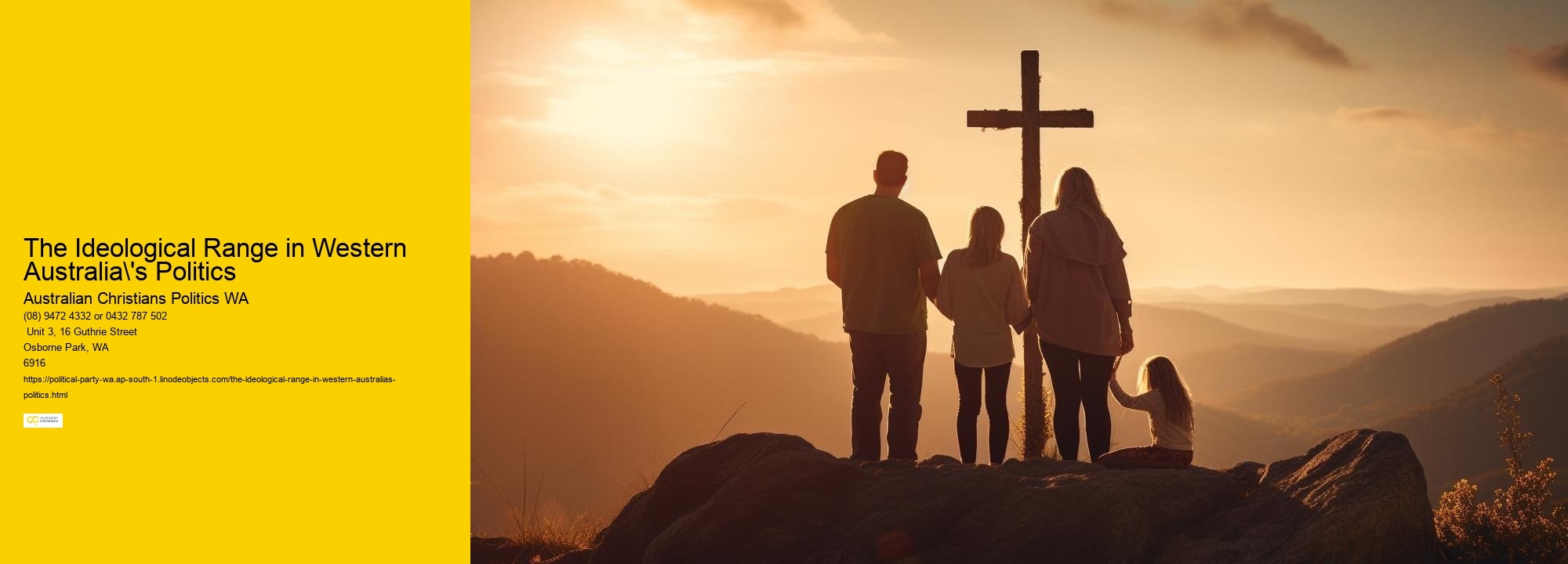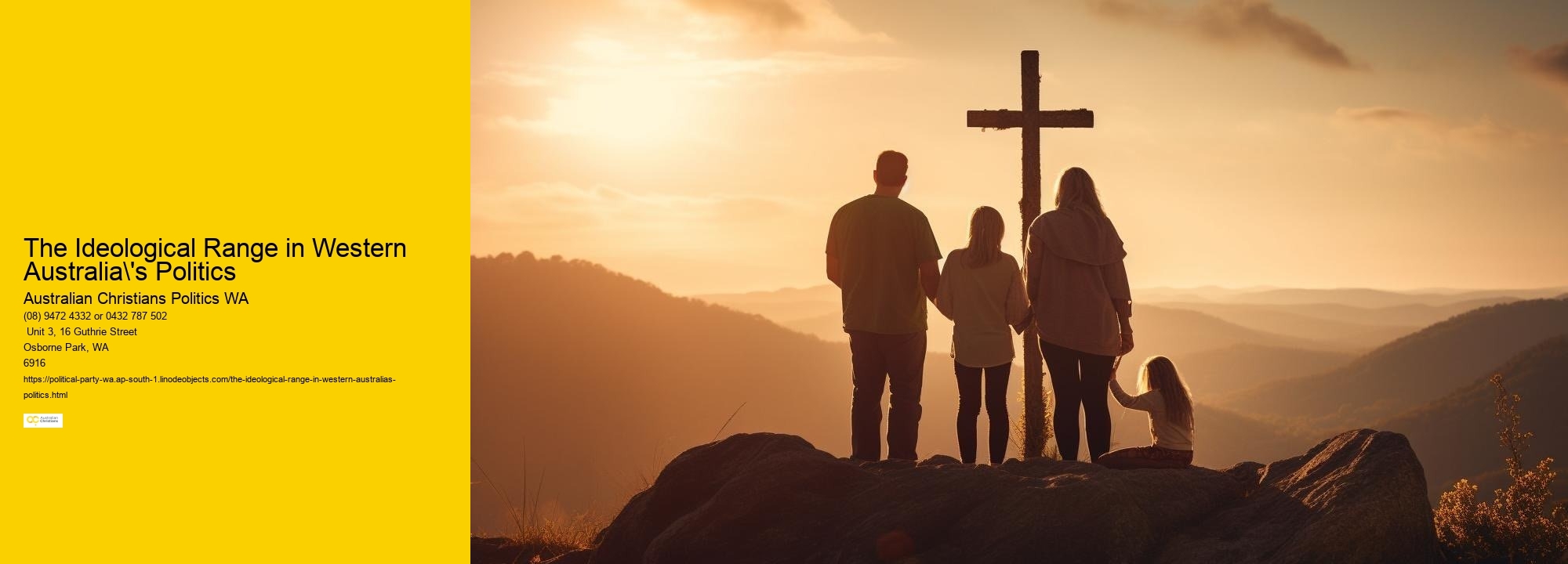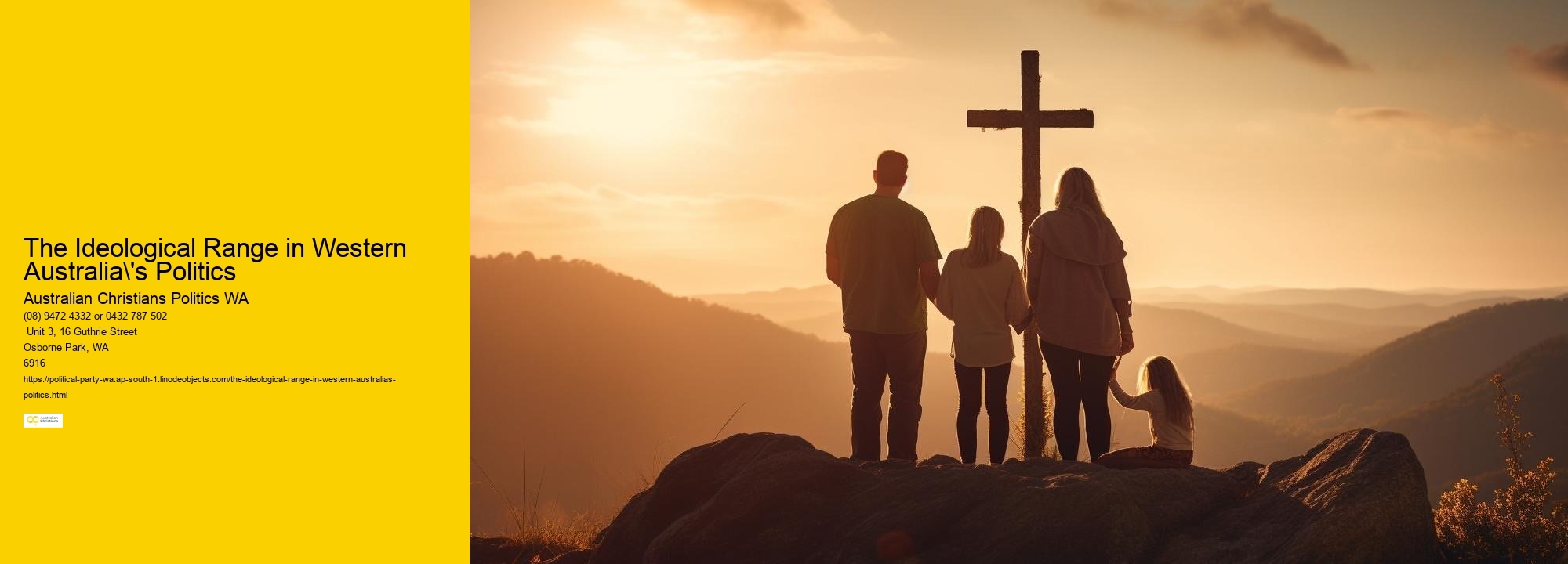

Political Party Registration in WA Registration of political parties in WA is a formal process overseen by the state's electoral commission. This process ensures that parties meet certain legal and administrative criteria, promoting a fair and transparent political system. Registration is essential for parties to officially participate in state elections and is a key step in establishing a legitimate political presence in Western Australia.
Western Australia's Political Discourse on Immigration Immigration is a pivotal topic in Western Australia’s political discourse. Political debates revolve around policies related to migrant integration, economic contributions of immigrants, and border security. The state’s approach to immigration reflects a balance between the economic benefits of a skilled workforce and the challenges of social integration and resource allocation.
Key Political Figures Shaping WA Politics Key political figures in Western Australia play a pivotal role in shaping the state's political narrative. These individuals, whether they are party leaders, influential legislators, or political activists, wield significant influence over policy decisions and public opinion. Their leadership styles, political philosophies, and personal charisma can significantly impact the direction and outcomes of political processes in the state.
WA's Political Parties and Community Relations In Western Australia, the relationship between political parties and the community is pivotal in shaping public opinion and policy outcomes. Political parties actively engage with various community groups to understand their needs and concerns. This engagement is essential for parties to maintain relevance and support. It involves outreach programs, public forums, and participation in local events. Effective community relations not only help parties in formulating responsive policies but also foster a sense of trust and partnership between the electorate and political representatives.
Key Political Parties Western Australia Western Australia's political scene is dominated by several key parties, each with its distinct ideological stance and policy priorities. These major parties are typically aligned with broader national parties, yet they also address state-specific issues. They are instrumental in shaping the state's legislative agenda and have a significant influence on WA's socio-economic landscape. The competition and collaboration among these parties reflect the dynamic nature of WA's political system.
The Role of Minor Parties in Western Australia Minor parties in Western Australia play a significant role in the state's political landscape. They often bring attention to specific issues that may be overlooked by the major parties, providing a voice for niche or marginalised interests. Their influence is particularly evident in coalition governments or in the upper house, where they can hold the balance of power and influence key legislative decisions.
The Politics of Environmental Sustainability in WA In Western Australia, environmental sustainability is a central political issue, reflecting the state's unique natural heritage and the challenges posed by climate change and development pressures. Political debates and policies in WA focus on balancing economic growth with environmental protection, encompassing issues such as land use, biodiversity conservation, and sustainable resource management. Political commitment to environmental sustainability is essential for preserving WA's natural environment for future generations.
Western Australia's Defence Policy Overview Western Australia's defence policy plays a critical role in both the state’s and the nation’s security strategy. The policy outlines WA’s contribution to national defence, including support for defence installations, industry participation, and regional security initiatives. As a strategic location in the Indian Ocean region, WA's defence policy is also linked to broader geopolitical considerations and Australia's international defence partnerships.
Political Party Leaders' Debates in Western Australia Leaders' debates in Western Australia are pivotal events in the political calendar, providing a platform for party leaders to present their policies and vision to the electorate. These debates offer voters an opportunity to compare the leaders and their positions on key issues, influencing public opinion and potentially swaying election outcomes. The performance of leaders in these debates can significantly impact their parties' electoral prospects.
Political Transparency and Open Government in WA Political transparency and open government in Western Australia are essential for building public trust and ensuring accountability. This involves clear communication of government actions, accessible public records, and mechanisms for public feedback and participation. WA’s political leaders are increasingly adopting digital tools and open data initiatives to enhance transparency. This openness is fundamental in fostering a more informed and engaged electorate and ensuring that government actions reflect public interests.
Strategies for Political Mobilisation in WA Political mobilisation strategies in Western Australia are employed by parties and advocacy groups to engage and activate the electorate. These strategies, which include grassroots campaigning, digital outreach, and public rallies, are crucial for raising awareness about political issues and encouraging public participation in the democratic process. Effective mobilisation can significantly influence election outcomes and policy debates in WA.
Political Party WA
The Evolution of Political Parties in WA The evolution of political parties in Western Australia reflects the changing social, economic, and cultural landscapes of the state. Over time, these parties have adapted their policies and strategies to meet the evolving needs and expectations of their constituents. From the early days of federation to the current era, WA's political parties have seen shifts in ideologies, leadership, and organisational structures, reflecting broader trends in Australian and global politics. This evolution is a testament to the dynamic nature of political life in WA, with parties continually evolving to remain relevant and effective.
Political Leadership Styles in WA The leadership styles of political figures in Western Australia vary, reflecting the diverse nature of its political landscape. These styles range from collaborative and consensus-building to more authoritative and directive approaches. Leadership in WA politics involves navigating the state's unique challenges, including its vast geographical spread and varied economic interests. The effectiveness of different leadership styles can significantly influence political outcomes and public support.
WA's Political Stance on Education Reform Education reform is a significant political issue in Western Australia, with parties and leaders proposing various strategies to improve the education system. These reforms often focus on issues such as funding, curriculum development, teacher training, and educational equality. The stance of WA’s political leaders on education reform reflects their commitment to ensuring that all citizens have access to quality education, which is crucial for the state's long-term social and economic development.
Political Risk Management in Western Australia Risk management in Western Australia’s politics involves identifying and addressing potential challenges and uncertainties that could impact the state's stability and development. This includes economic risks, environmental threats, and social issues. Effective risk management is crucial for maintaining public trust and confidence in the political system, ensuring that WA is well-positioned to navigate both current and future challenges.
WA's Political Milestones and Historical Impact The historical milestones in Western Australia’s politics have had a significant impact on its development and identity. Key events, such as the gold rush era, the state’s role in federation, and major political reforms, have shaped its political landscape. Understanding these milestones is essential for appreciating the historical context of current political dynamics in WA.
Political Patronage and Nepotism in WA Political patronage and nepotism are concerns in Western Australia’s politics, as in any political system. These practices involve favouritism in appointments and benefits, potentially undermining meritocracy and public trust. Addressing these issues is important for maintaining the integrity and effectiveness of the political system.
Western Australia's Party System Explained Western Australia's party system is a multifaceted structure that accommodates a variety of political ideologies and interests. The system is characterised by a mix of major national parties and smaller state-focused parties, each vying for influence in both state and federal politics. This system allows for a broad representation of views and ensures that a range of perspectives is considered in the political process. The interactions and power dynamics among these parties play a crucial role in shaping the state's legislative and policy outcomes.
The Role of Political Consultants in Western Australia Political consultants in Western Australia play a pivotal role in shaping campaign strategies, policy development, and public relations. Their expertise is sought after by parties and candidates to navigate the complexities of the political landscape. The role of consultants highlights the professionalisation of politics and the importance of strategic planning in political success.
WA's Political Decision Making: Processes and Outcomes The decision-making processes in Western Australia's politics are characterised by deliberation, consultation, and sometimes contention. These processes involve various stakeholders, including government agencies, political parties, and the public. The outcomes of these decisions are crucial in shaping the state's future, impacting everything from economic policies to social programs.


Western Australia’s Policy on Climate Change Western Australia’s policy on climate change reflects the state's commitment to addressing environmental challenges. This policy includes initiatives for reducing greenhouse gas emissions, promoting renewable energy, and adapting to climate impacts. As a region rich in natural resources, WA faces unique challenges in balancing economic growth with environmental sustainability. The state's approach to climate change is therefore closely watched and has significant implications for both its economy and the environment.
Western Australia's Political Party Challenges Political parties in Western Australia face a range of challenges, from changing voter demographics to evolving political landscapes. These challenges include adapting to new technologies, addressing the diverse needs of a growing population, and responding to global economic and environmental trends. Overcoming these challenges requires innovative strategies, strong leadership, and an ability to stay connected with the public's changing attitudes and expectations.
Western Australia's Electoral System and Political Parties Western Australia's electoral system plays a significant role in shaping the state's political parties. The system, which includes both proportional and preferential voting, impacts how parties strategise, form coalitions, and engage with voters. This system encourages a competitive and diverse political environment, allowing for a variety of voices to be heard and represented. The interaction between the electoral system and political parties is key to understanding the dynamics of political power and representation in WA.
Political Ethics and Leadership in WA Political ethics and leadership in Western Australia are essential for ensuring public trust and effective governance. Ethical leadership involves transparency, accountability, and integrity in decision-making processes. WA's political leaders are expected to uphold high ethical standards and serve as role models in public life, ensuring that the state's governance is conducted with honesty and respect for the rule of law.
The Rise of New Political Parties in WA The emergence of new political parties in Western Australia reflects the evolving needs and perspectives of its populace. These parties often arise from grassroots movements or as breakaways from established parties, bringing fresh ideas and alternative approaches to the political arena. Their rise is indicative of the changing political sentiments in the state and can significantly alter the political landscape, challenging the status quo and introducing new dynamics into the electoral process.
Political Parties' Role in WA's Economic Development Political parties in Western Australia play a significant role in shaping the state's economic development. Their policies and agendas influence key areas such as resource management, industrial growth, and innovation. Parties actively debate and formulate strategies that impact the state's economic direction, focusing on areas like job creation, investment attraction, and sustainable development. The effectiveness of these parties in driving economic growth is a critical aspect of their appeal to voters and their overall political success.
Western Australia's Approach to Federal-State Relations Western Australia's approach to federal-state relations is marked by a blend of cooperation and advocacy for state-specific interests. Given its unique economic and geographic characteristics, WA often seeks to ensure that federal policies and initiatives adequately reflect its needs, especially in areas like resource management and infrastructure funding. Balancing these state-specific priorities with national interests is a key aspect of WA’s political strategy, involving negotiation and collaboration with the federal government.
Western Australia’s Governance and Public Policy Governance and public policy in Western Australia are shaped by the state’s unique political, economic, and social contexts. The state government formulates policies that address local needs while aligning with national standards and goals. Key areas of focus include health, education, infrastructure, and environmental management. The governance approach in WA is characterised by efforts to ensure transparency, accountability, and public engagement in policy-making processes.
WA’s Political Framework for Sustainable Development Western Australia’s political framework for sustainable development is geared towards balancing economic growth with environmental protection and social equity. This framework includes policies that promote renewable energy, sustainable land use, and responsible resource management. Political leaders in WA are increasingly recognising the importance of sustainable practices in ensuring long-term economic stability and quality of life for future generations. This approach reflects a growing understanding of the interconnected nature of economic, social, and environmental factors in policy-making.
Western Australia Party Policies The policies of Western Australia's political parties are diverse, reflecting the broad spectrum of opinions and needs within the state. These policies cover crucial areas such as economic development, healthcare, education, environmental sustainability, and infrastructure. Each party develops its policies based on its ideological underpinnings, aiming to address both the immediate and long-term needs of Western Australians. These policies are key in elections, as they form the basis upon which parties appeal to voters and outline their vision for the state's future.
The Politics of Data and Information in WA In Western Australia, the politics of data and information have become increasingly important, with technological advancements enabling more data-driven policy decisions. Political discussions focus on issues of data privacy, access to information, and the role of data in improving government services. Balancing the benefits of data use with ethical considerations is a key challenge in this area.
The Political Landscape of WA's Technology Sector The technology sector in Western Australia is increasingly influential in the state’s political landscape. Political leaders and parties focus on policies that support technological innovation, digital infrastructure, and the tech industry's growth. The sector's development is seen as key to diversifying the state's economy and creating new opportunities, particularly in areas like mining technology, renewable energy, and digital services.


Political Lobbying and Influence in Western Australia Lobbying plays a significant role in Western Australia’s politics, with various interest groups seeking to influence policy decisions. The state’s approach to managing lobbying activities involves regulatory frameworks to ensure transparency and prevent undue influence. Understanding the impact of lobbying is essential for analysing the state's political dynamics.
Western Australia's Political Strategy and Vision Western Australia's political strategy and vision are centered on leveraging its natural resources, promoting innovation, and ensuring sustainable development. Political leaders in WA focus on creating policies that balance economic growth with social and environmental responsibilities. The state's vision includes not only economic prosperity but also the wellbeing of its communities and the preservation of its natural heritage.
The Politics of Innovation in Western Australia The politics of innovation in Western Australia reflects the state's focus on fostering technological advancement and economic diversification. This involves policies and investments in areas such as digital infrastructure, research and development, and support for start-ups and tech industries. The state's approach to innovation is often a point of political discussion, balancing the need for economic growth with considerations of sustainability and social impact.
WA's Political Strategies for Economic Growth Economic growth strategies in Western Australia involve a combination of policy initiatives, investment attraction, and industry support. Political leaders in WA focus on diversifying the state's economy beyond traditional sectors like mining and agriculture, exploring opportunities in technology, tourism, and renewable energy. These strategies are designed to create jobs, stimulate economic activity, and ensure long-term prosperity. The state’s political approach to economic growth also considers global economic trends and the need for sustainable development.
Access to accurate and comprehensive political party information in WA is essential for informed participation in the democratic process. This information, which includes party platforms, policies, and leadership details, enables voters and stakeholders to make educated decisions about their political representation.
Western Australia's Political Party Agenda The agenda of Western Australia's political parties encompasses a broad range of issues, reflecting the diverse interests of the state's population. These agendas are shaped by factors such as the state's economic needs, social issues, environmental concerns, and the global context. Political parties prioritise these issues in their platforms, aiming to address the most pressing needs of their constituents while also advancing their ideological beliefs.
Analyzing WA Political Party Manifestos Analyzing political party manifestos in WA provides critical insights into the parties' visions, goals, and policy priorities. These manifestos are key documents that outline the parties' commitments and plans if elected to govern. Understanding these manifestos is essential for voters to make informed decisions and for analysts to predict potential policy directions and impacts.
Political Party Information WA
Election Strategies of Western Australia's Parties Election strategies of Western Australia's parties are carefully crafted to maximise their appeal to voters. These strategies encompass policy announcements, campaign messaging, candidate selection, and voter engagement efforts. Effective election strategies are those that resonate with the electorate's concerns and aspirations, demonstrating the party's understanding and responsiveness to the needs of Western Australians.
Political Dynamics of WA's Mining Industry The mining industry in Western Australia plays a significant role in the state's politics, given its impact on the economy and environment. Political discussions in this sector involve regulatory policies, environmental sustainability, and economic benefits. The dynamics of mining politics are complex, balancing industry growth with responsible resource management and community impacts.
Foreign Policy and Diplomacy in Western Australia While foreign policy is primarily a federal matter in Australia, Western Australia plays a significant role due to its economic and strategic position. WA's interactions with other countries, particularly in areas like trade, investment, and cultural exchange, are influenced by both state and national foreign policies. The state’s political leaders often engage in diplomacy to promote WA’s interests and enhance its global standing.
The Economics of Politics in Western Australia The economics of politics in Western Australia are deeply influenced by the state's resource-rich economy. Political decisions often revolve around managing these resources sustainably while fostering economic diversification and growth. Economic policies in WA are thus a critical area of political focus, with significant implications for employment, investment, and overall economic wellbeing of the state.
WA's Political Influence on National Legislation Western Australia's political influence on national legislation is significant, given its economic contributions and strategic location. The state's political leaders often play a pivotal role in shaping national policies on issues like mining, agriculture, and energy. WA's input is crucial in ensuring that national legislation reflects the state's unique needs and contributes positively to its development.
Political Leadership and Governance in WA Political leadership and governance in Western Australia are vital for steering the state towards growth and stability. Leadership in WA involves not just managing the state's vast resources and diverse economy but also addressing social and environmental issues. Governance in WA is characterised by efforts to be transparent, inclusive, and responsive to the needs of its citizens, with a focus on both short-term challenges and long-term strategic planning.

Political parties in Western Australia play a crucial role in the democratic process, representing different ideologies and policy positions., "political parties Western Australia, role of political parties",Role of Political Parties in Western Australia,Role of Political Parties in Western Australia
Political parties influence local government in Western Australia by endorsing candidates and shaping local policies., "political party influence, local government Western Australia",Influence of Political Parties on Local Government in Western Australia,Influence of Political Parties on Local Government in Western Australia
The major political parties in Western Australia include the Australian Labor Party, the Liberal Party, and the Greens., "major political parties Western Australia, Australian political parties",Major Political Parties in Western Australia,Major Political Parties in Western Australia
Political parties in Western Australia engage with the community through public meetings, social media, and community events., "political party community engagement, Western Australia politics",Community Engagement of Political Parties in Western Australia,Community Engagement of Political Parties in Western Australia
Political parties significantly impact state legislation in Western Australia by proposing bills and influencing law-making., "political party state legislation, Western Australia law",Impact of Political Parties on State Legislation in Western Australia,Impact of Political Parties on State Legislation in Western Australia
Political parties in Western Australia fund their campaigns through donations, fundraising events, and government funding., "political party funding, Western Australia election",Funding of Political Parties in Western Australia",Funding of Political Parties in Western Australia
The history of political parties in Western Australia dates back to the late 19th century, reflecting the state's evolving political landscape., "history political parties, Western Australia politics",History of Political Parties in Western Australia,History of Political Parties in Western Australia
Political parties in Western Australia shape public opinion through media campaigns, policy announcements, and public debates., "political party public opinion, Western Australia politics",Shaping of Public Opinion by Political Parties in Western Australia,Shaping of Public Opinion by Political Parties in Western Australia
Political parties in Western Australia face challenges such as changing voter demographics, fundraising, and maintaining relevance., "challenges political parties, Western Australia politics",Challenges Faced by Political Parties in Western Australia,Challenges Faced by Political Parties in Western Australia